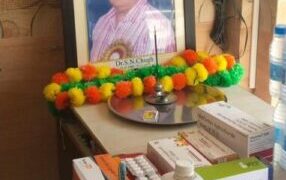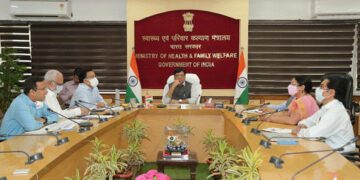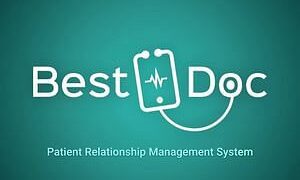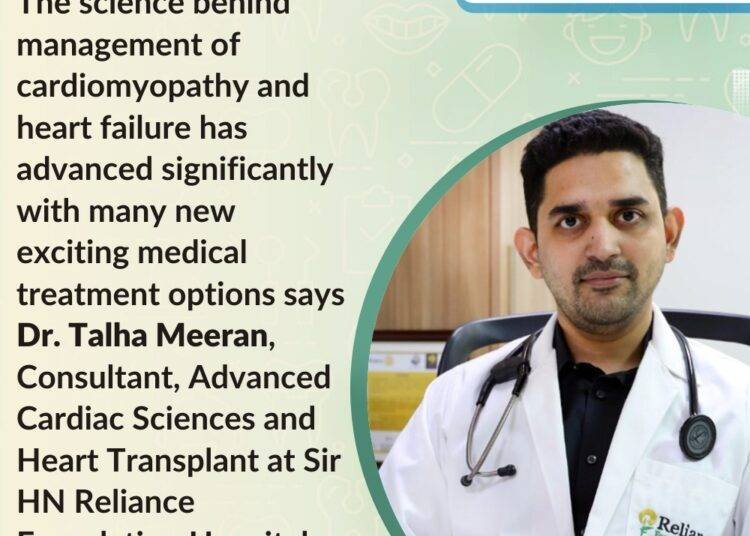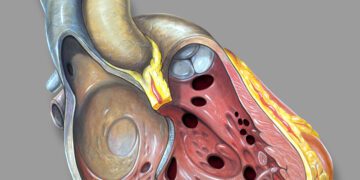Dr. Talha Meeran
Heart Failure is a clinical condition that results from a problem in the heart muscle aka cardiomyopathy. Cardiomyopathy is any abnormal condition of the heart where the heart has trouble pumping blood forward or receiving blood. In both cases, the back pressure changes on the heart starts to increase over time and leads to fluid accumulation (“congestion”) in the heart, lungs and other vital organs such as kidney and liver. Hence, this condition is also sometimes referred to as “Congestive Heart Failure”.
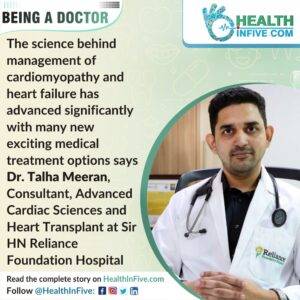
Heart Failure is global health issue affecting nearly 3-4 crore people worldwide. By conservative estimates, nearly 50-60 lakh people suffer from heart failure in India. Depending on the underlying cause, this condition can affect individuals of all ages ranging from birth to adults and older individuals. If left un-treated or improperly treated, heart failure tends to cause progressively worse symptoms ultimately leading to frequent hospitalisations for intravenous medical therapy and also increasing chances of sudden cardiac death. Early identification of the condition and timely, appropriate medical therapy can significantly alter the clinical course of this condition and help the patients achieve major improvement in their symptoms.
Luckily, the science behind management of cardiomyopathy and heart failure has advanced significantly with many new exciting medical treatment options coming to the fore. Cardiac transplant as a treatment option is only reserved for those few, end-stage heart failure patients who have become resistant to medical therapy or are intolerant to medical therapy. Over the last 7-8 years, the cardiologist community has witnessed some ground-breaking positive clinical trials pertaining to our field adding at-least 4 new drug molecules to our medical treatment armamentarium. These new classes of medications have been shown to not only help patients improve their symptoms but also to keep them alive, well and out of the hospital for a longer time compared to the older medications. The medications are now easily available at all pharmacies in India but need expert supervision and guidance. Along with these medications, a cohesive team approach involving cardiac rehabilitation and regular dietary counselling have been shown to improve clinical outcomes as well.
In certain special circumstances of cardiomyopathy, such as cardiac amyloidosis and hypertrophic cardiomyopathy, there are special new medications that can be used to control the clinical progression of the disease course. However these medications are not routinely available in India but can be sourced from abroad using special drug stockists and suppliers via proper legal routes.
If the heart failure is thought to be related to blockages in the blood vessels of the heart (coronary artery blockage), then timely intervention to relieve the coronary artery blockages with the help of angioplasty or bypass surgery can certainly help in improving the heart function.
Heart failure can also cause peculiar changes in the electrical circuit of the heart which causes lack of synchrony between the right and left sides of the heart. In this scenario, special types of pacemaker leads can be placed in the heart to help the heart’s two sides beat in unison again. This approach has shown to cause significant improvement in the patient’s symptoms and is backed by years of robust clinical trial data.
If patients continue to have persistent symptoms despite all above mentioned alternatives, then some carefully selected patients can be considered for heart-pump (Left Ventricular Assist Device-LVAD) implantation. LVAD implantations require open heart surgery but can be an alternative in patients who are ineligible or unwilling for cardiac transplant. Cardiac transplant is always reserved as a therapy of last resort when all else has failed.
The writer is Consultant, Advanced Cardiac Sciences and Heart Transplant, Sir HN Reliance Foundation Hospital, Mumbai
Follow Health In Five on LinkedIn, Facebook, Twitter & Instagram
Subscribe on WhatsApp & Telegram to receive real time updates




